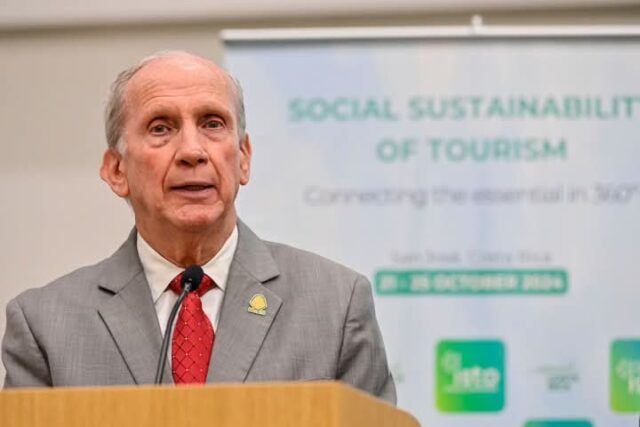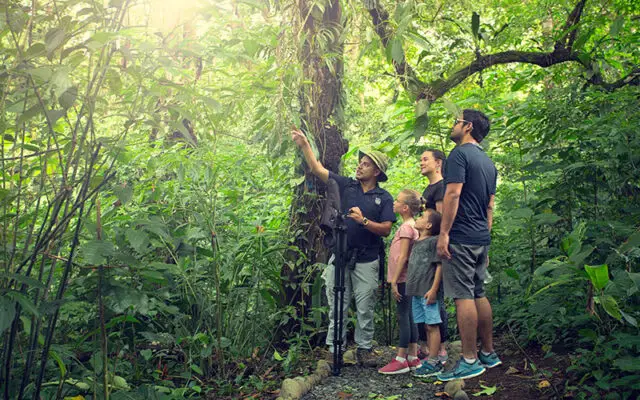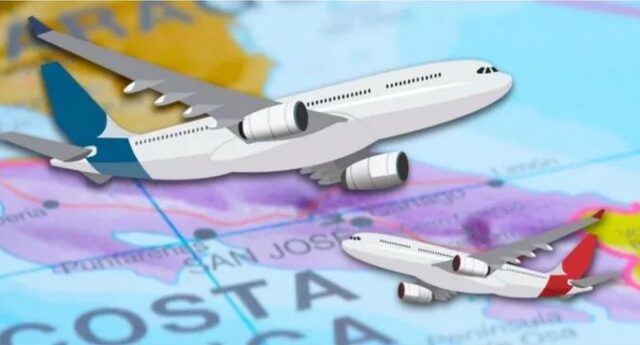In Costa Rica, there are several bills focused on the modification of working hours per week and vacations which, of course, has generated numerous debates, in which the pros and cons have prevailed.
Everything arose after the pandemic, putting on the table the issue of tourism for Costa Ricans and their loved ones, taking into account working time.
One of the projects in the Costa Rican Legislative Assembly, is promoted by the Frente Amplio party, in which they are emphasizing to modify the Labor Code to increase the vacation time from two to three weeks per year.

The proposal, called “Law for the updating of paid vacations per year”, was presented by deputy Ariel Robles of the Frente Amplio and its file number is No. 23.904. This project has two versions, the first one was rejected by votes linked to the Government, and the second one is the current one, rejected a month ago by deputies of Progreso Social, Nueva República and the Partido Liberal Progresista (Progressive Liberal Party).
The proposal was submitted to a vote in the Legal Affairs Committee and was tied twice, with four votes in favor and four against, so the plan was officially shelved, therefore, the Frente Amplio announced that it will submit a new proposal.
However, this initiative is considered by those who reject it as a “risk to countless jobs, besides, it would affect companies, especially SMEs in their attempts to grow and overcome the pandemic”.
On the other hand, the deputy who presented the bill, Ariel Robles, considers that both private and public sector workers, through the Law, should have the same vacation conditions enjoyed by deputies.
“The deputies at the end of the year we approved three weeks, plus three days of Easter. I ask myself, why do we have the right and the rest of the workers do not?

The second project is called “4×3 Workday” and is promoted by legislators of the Social Democratic Progress Party, through this proposal, they promote the implementation of a 12-hour workday for four days, followed by three days off. In this way, the current 48 hours per week would be complied with.
It is worth mentioning that this initiative has the support of the Presidency of the Republic and the National Chamber of Tourism (CANATUR). However, it has been rejected by the Attorney General’s Office of the Republic, “because it could negatively impact the balance between rest, health, safety, family life and work”.
The proposal has not advanced within the Legal Affairs Committee due to questions about its constitutionality, in view of this, the Frente Amplio proposed an alternative that would reduce the daily working day to eight hours, completing a total of 40 hours per week instead of the current 48, all this is reflected in the Bill whose file is No. 23.905, and was also rejected in the Legal Affairs Committee by votes of benches related to the executive power, preventing it from being discussed in the plenary.
Therefore, there is still a hope with the “4×3 Day” project, which still has the support of the Costa Rican government.
Do you know the Bill “Vacaciones con Sentido: Bienestar Personal y Familiar” (Holidays with Meaning: Personal and Family Well-being)?
The Social Affairs Commission of the Legislative Assembly decided in July to shelve the bill whose file number is 24.274, called “Vacations with Purpose: Personal and Family Welfare”, leaving it without viability.
The project was promoted by congresswoman Pilar Cisneros Gallo, in order to reform article 148 of the Labor Code, to allow families to enjoy more time together and encourage domestic tourism, in addition to increasing economic activity in various regions of the country.
We learned about this initiative through a conversation we had with the Minister of Tourism, William Rodriguez, who detailed that there is currently a new Bill in the Tourism Commission, No. 23.981, which intends that, as from 2025, the enjoyment of the holiday corresponding to the dates: April 11, May 1, July 25 and December 1, will be moved to the immediately preceding Monday, in cases where these dates fall on Tuesday or Wednesday, and to the immediately following Monday when these fall on Thursday.

“From our point of view, bills that tend to favor Costa Ricans to vacation or have recreational trips within the country are positive and we will support them,” he said.
Costa Rica among the countries with the most hours worked per year
According to the Top 10 countries of the Organization for Economic Cooperation and Development (OECD), where the most hours are worked per year, Costa Rica ranks 3rd.

A closer look at the OECD data shows that the United States, with an average of 1,799 hours per year, and Canada, with 1,865 hours, are below Costa Rica, which exceeds the average of 2,000 working hours per year.
In other words, Costa Rica stands out as one of the countries that offers its workers the fewest rest days.
While workers in the OECD average three weeks of rest per year, Costa Ricans only have a maximum of two weeks.
The national vs. international tourist
The Costa Rican tourist is the protagonist of the campaign of the Costa Rican Tourism Institute (ICT) called “Sacá naturalmente tu Pura Vida”, whose campaign highlights the Costa Rican population as part of the tourist experience offered abroad and arose in a context of growing criticism for gentrification in destinations with a high influx of foreign tourists.


Beyond all this, Minister William Rodriguez, highlighted that July was an exceptional month this year, in which 239,368 tourists arrived by air to the country, which represented an increase of 7.2% compared to last year 2023.
Finally, it was learned that the number of tourists who visited Costa Rica from January to July this year by air amounted to 1,771,811 tourists, an increase of 13.5% compared to the same period last year.

We hope that the legislators can soon reach an agreement and that some of the Bills can be approved, taking into account: the value to the working Tico, who deserves days of rest and enjoyment with their loved ones in the many places that the country has and also the sustainability of SMEs, among other aspects in the financial part of tourism.

